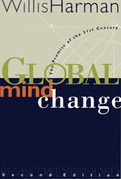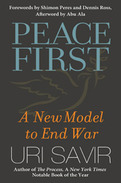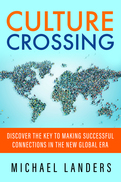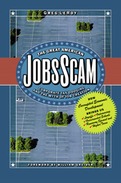1998
Revolutions are generally thought of as large-scale, bloody upheavals involving whoe countries and societies. But there are quieter revolutions that begin in the individual mind and create the kind of change that may be even more significant. By deliberately changing their internal image of reality, people are transforming the world. Right now we are living through one of the most fundamental shifts in histroy-a change in the actual belief structure of Western industrial society.
Global Mind Change, first published in 1988 and revised and expanded by the author just before his death in 1997, connects every major field of human endeavor in its exploration of the possibilities for social transformation through internal change. Harman, whose career spanned both the technical (electircal engineering) and psychological sciences, examines the role of consciousness in five areas:
o Mature science, which validates subjective, religious, and spiritual insights along with objective data as a way of describing reality
o Spirituality and consciousness research, which shows the compatibility between the world's religions and the insights of thousands of years of exploration of consciousness
o Health and healing, where the mind's role is increasingly recognized as a crucial influence on human wellness
o Psychology and psychotherapy, where research into unexplained phenomena and exceptional mental and physical abilities proves the only human limits are those we believe in
o Economics and management, where managers are utilizing brain-mind research to release employees' creativity, and corporations are addressing global issues of poverty, security, and the environment
Revolutions are generally thought of as large-scale, bloody upheavals involving whoe countries and societies. But there are quieter revolutions that begin in the individual mind and create the kind of change that may be even more significant. By deliberately changing their internal image of reality, people are transforming the world. Right now we are living through one of the most fundamental shifts in histroy-a change in the actual belief structure of Western industrial society.
Global Mind Change, first published in 1988 and revised and expanded by the author just before his death in 1997, connects every major field of human endeavor in its exploration of the possibilities for social transformation through internal change. Harman, whose career spanned both the technical (electircal engineering) and psychological sciences, examines the role of consciousness in five areas:
o Mature science, which validates subjective, religious, and spiritual insights along with objective data as a way of describing reality
o Spirituality and consciousness research, which shows the compatibility between the world's religions and the insights of thousands of years of exploration of consciousness
o Health and healing, where the mind's role is increasingly recognized as a crucial influence on human wellness
o Psychology and psychotherapy, where research into unexplained phenomena and exceptional mental and physical abilities proves the only human limits are those we believe in
o Economics and management, where managers are utilizing brain-mind research to release employees' creativity, and corporations are addressing global issues of poverty, security, and the environment
2008
Uri Savir has an ambitious, indispensable goal: to bring peacemaking into the 21st century. “Little in today’s world,” writes Savir, “is more progressive than modern warfare. Yet little is more archaic than peacemaking.” We remain trapped in a centuries-old mindset, with leaders bargaining warily for concessions and signing treaties that collapse because no one on the ground has any real stake in them.
Drawing on his experiences negotiating the Oslo Peace Accords as well as on trenchant examples from Ethiopia, Eritrea, Rwanda, Sierra Leone, Afghanistan, India, Pakistan, Northern Ireland, and the former Yugoslavia, Savir argues that an enduring peace is built from the bottom up, not from the top down. He describes a new model based on establishing and nurturing mutually beneficial forms of cooperation beginning on the local level, city-to-city and organization-to-organization.
This process of “glocalization”—involving local actors in global issues—is the first step toward constructing a peace ecology: a comprehensive transnational culture dedicated to breaking down the psychological and social barriers between former enemies. These efforts are furthered through the establishment of joint ventures that give each side a tangible stake in maintaining peace. Diplomacy still has a role, but it must reject maneuvering for gain and instead emphasize the advantages both sides will gain with the cultivation of lasting peace.
Throughout, Savir provides concrete examples of how these concepts have been put into practice. And he ends with a detailed vision of how this model could bring an enduring peace in one of the world’s most war-torn areas: the Mediterranean Basin. Peace First offers a pragmatic yet revolutionary new approach that promises to end our most intractable conflicts.
2017
People, money, and information are flowing faster than ever across international borders, putting us all just one step away from a culture crash—that moment when you unintentionally confuse, frustrate, or offend someone from another culture. Are you struggling with trying to learn the customs, nuances, and hot buttons of every culture you might come into contact with? Michael Landers guides you toward a better solution: becoming aware of your own cultural “baggage.” You'll learn to sidestep the knee-jerk reactions that can get you into trouble and develop the agility to adjust your behaviors and expectations as needed. Through a mix of entertaining and instructive stories, valuable insights, and eye-opening self-assessments, Culture Crossing offers an essential primer for improving all your interactions with people from any background.
Sometimes you get only one chance. A good introduction can create connections and open doors. A bad one can make conversation fizzle and opportunities fade. What you need is a story that tells who you are—authentically, compellingly, and concisely—and can be adapted to fit any situation. Created for dynamic beings constantly redefining themselves, their work, and the world around them, Tell Me About Yourself pairs interviews and case studies with a simple, scalable framework, helping you craft and deliver comprehensive, compelling, and generally kick-ass introductions and personal stories for yourself, your team, or your company. In an ever-changing innovation economy and a climate that demands we put our best foot forward to create change, there's no better time to learn how to articulate your usefulness to the world.
2007
- Reveals the severe--and surprising--limits on free speech in the American workplace
- Includes vivid examples illustrating just how restricted workplace speech has become
- Suggests ways to expand employee rights while protecting employers' legitimate concerns
- Learn more at www.SpeechlessTheBook.com




















